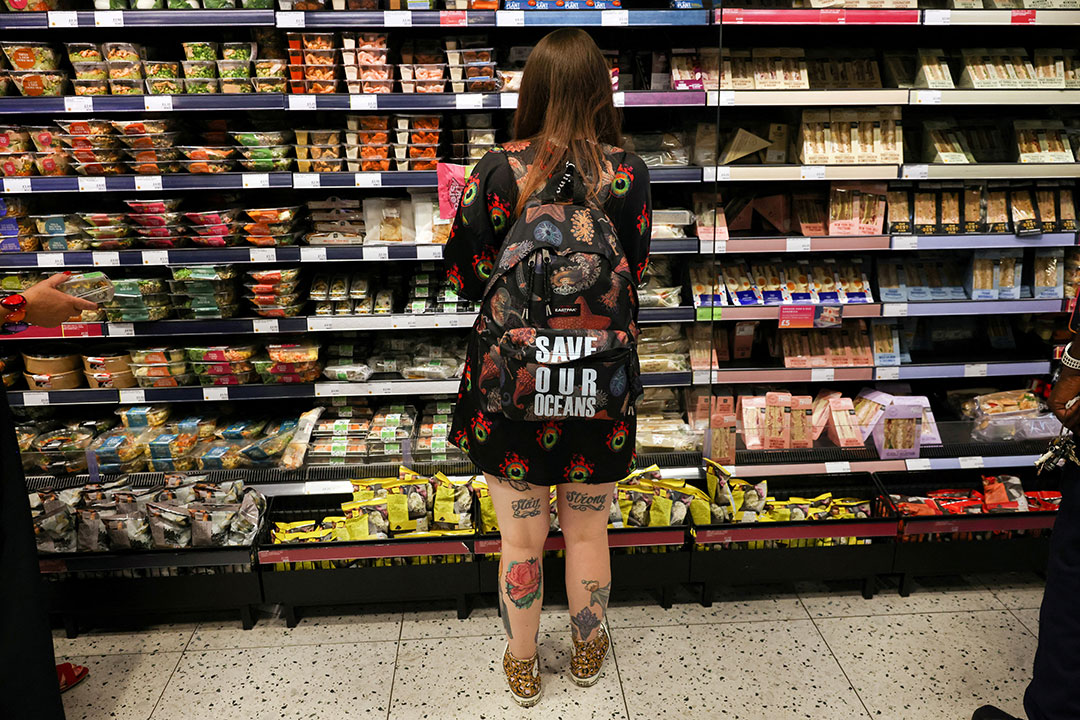Great Britain has a growing black market for food — and it’s making the cost-of-living crisis worse
 REUTERS
REUTERS
THE UK food sector has faced its fair share of challenges, and issues around supply are not uncommon. In the year to January 2024, overall food prices rose by 7%. To compound this, last year, the UK's Competition and Markets Authority highlighted the issue of "greedflation" among retailers that are thought to be hiking prices at a greater rate than wholesale rises.
All this is helping to fuel a food black market in the UK, a problem that has serious implications for legitimate businesses and is the cause of many of the product shortages consumers see on the supermarket shelves.
The British Standards Institution recently stated that 22% of all thefts from lorries and warehouses last year were of food and drink products.
The stolen goods were then redistributed into illegitimate supply chains and sold on within days.
This is an increase from 17% in 2022, as the black market gets bigger.
Black market operators often target products that are easily resold, including food, toys, white goods and perfumes, as opposed to more expensive products. Last year, for example, a heavy goods vehicle (HGV) containing GBP50,000 of cheese was stolen from a motorway service station near Worcester.
Reasons for turning to the black market for food are multilayered. But often, it is fueled by those who are hit hard by the cost of living.
And it may be that buyers can justify it because, as they see it, they are not shoplifting themselves.
But the trade has real implications for business, tax evasion and supply chain integrity. The rise of food black markets has coincided with the rising cost of living and increased consumer demand for lower prices.
The choice between heating or eating has become commonplace for many UK households. Despite inflation now being close to the government's 2% target, the cost of living continues to rise from its already high level.
And access to cheaper food, even illegally, is a choice many are willing to make.
These purchases can take place on back alleys or online, with platforms such as Facebook and Instagram popular for black-market trade.
James Lowman, CEO of the Association of Convenience Stores, said recently that retailers are facing a daily "onslaught of crime" and added that some are losing tens of thousands of pounds per year to theft alone. UK convenience stores suffered a 400% increase in thefts in 2023. Taken alongside a reported 380% increase in HGV roadside thefts, this demonstrates how vulnerable the UK's end-to-end food supply chains can be.
For HGV drivers, secure truck parking, improved trailer designs and better data sharing and collaboration with retailers could help.
Other parts of the sector have been modernized with automation and robotics.
But the haulage industry appears to be stuck in a time warp, akin to having a supersonic jet rely on a horse-drawn carriage for its final leg. Thefts at both the start and end of a chain pose a double threat to supply chains across the system.
Looting of HGVs interferes with the movement of raw materials and supplies. And thefts from retailers cause supply shortages at the point of sale, further disrupting the chain.
This affects the availability of products and forces retailers to try to find replacements quickly.
The challenge comes when shoplifting is not given enough attention by under-resourced police. Retailers are often expected to manage the problems on their own.
And the theft of foods intended for the black market typically involves much larger quantities than petty shoplifting.
Aside from the loss of sales for businesses, there are also expenses associated with overcoming these challenges. Costs include hiring more security guards and CCTV cameras, as well as increased administration that removes staff from customer-facing work.
Shoppers have reported seeing more tags on food items, with the devices now attached to things like meat and cheese.
Retailers must pay for this of course.
Attaching a GBP50 tag to GBP5 items adds to operating budgets, which will eventually be passed on to the consumer.
Aside from the costs to business, theft also leads to supply chain issues. An item stolen from a shop still shows as being available on the inventory, which leads to delays in restocking and empty shelves for customers.
While large retailers may be able to absorb the costs, smaller independent businesses operating on tighter margins suffer more. And this is coming at a time when small businesses will be feeling the pressure of new import control charges of up to GBP145 on even small consignments of some foods from the EU.
Rising insurance premiums for businesses in the most affected areas, as well as missing stock, means yet more extra costs in the chain that will again be passed on to the consumer.
When there is theft at both ends of the system, it affects the entire food supply chain and leads to shortages, price hikes and business disruption.
And ultimately, it eats into the consumer confidence that business has been fighting so hard to restore. -- Reuters